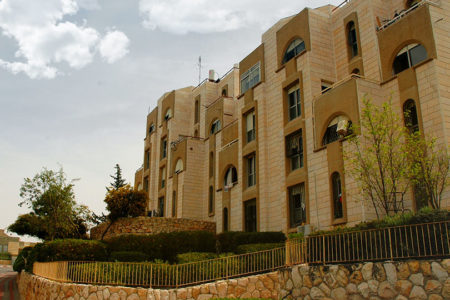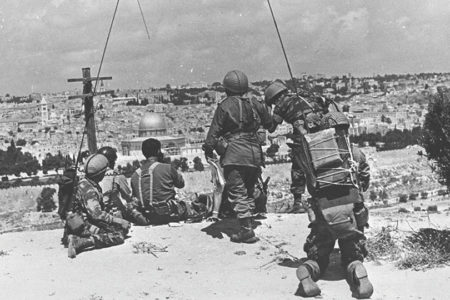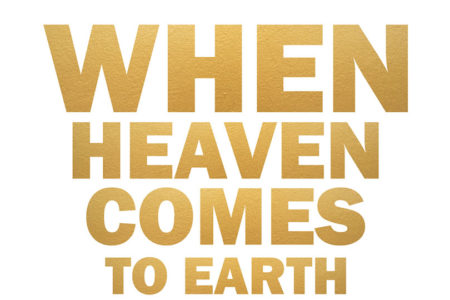Rehearsal for Armageddon
How important is Jerusalem to the Jewish people? Their souls have been intertwined with it for more than 3,000 years. Unfortunately, their heartache is not over. This article was written shortly after Six-Day War and ran in the October/November 1967 issue of Israel My Glory.
In recent months the world was amazed to watch Israel’s swift victory over the Arab forces. For years Egyptian President Gamal Abdel Nasser and his allies boasted that they would drive the Jews into the sea. In less than 20 years, little David was forced to accept three times the challenge of Goliath and to bring him low. Not since the times of Pharaoh at the Red Sea has Egypt suffered such a devastating and humiliating defeat. The remarkable prophecy of Isaiah was fulfilled: “And the land of Judah shall be a terror unto Egypt, every one that maketh mention thereof shall be afraid in himself” (Isa. 19:17, KJV).
On June 9, 1967, the chief chaplain of Israel’s armed forces, Rabbi Shlomo Goren, sounded the ritual ram’s horn at the Wailing [Western] Wall in Jerusalem. Clutching in his arms the scrolls of the Torah, Rabbi Goren cried, “We have taken the city of God. We are now entering the Messianic era for the Jewish people. I promise the Christian world that we will take good care and be responsible for all the holy places in Jerusalem.”
A few days later, happy and excited multitudes of Jews from all over Israel and abroad streamed through the ancient gates and narrow streets of Jerusalem. Young and old, they came; fathers carrying their children on their shoulders and worldly Jews mingled with long-bearded, pious Jews wrapped in their prayer shawls. Praying, laughing, weeping, and singing, their hearts were filled with a rapturous surge of joy and excitement. The words of the psalmist, written almost 3,000 years ago, became a vivid reality:
When the LORD turned again the captivity of Zion, we were like them that dream. Then was our mouth filled with laughter and our tongue with singing; then said they among the heathen, The LORD hath done great things for them (Ps. 126:1–2, KJV).
Not since the days of our Lord has Jerusalem seen such throngs within her walls. It is almost impossible to describe the intensity of the Jewish people’s emotional attachment to Jerusalem. It is their holy city, the heart of their nationhood that, for the past 19 centuries, has been ruled by foreign invaders and from which they were completely banished for the past 19 years.
Since AD 70, when Jerusalem was destroyed by the Romans, the exiled, plundered, and oppressed Jews have looked with deep yearning toward Zion. Like the Jewish people during the Babylonian exile, they prayed and vowed, “If I forget thee, O Jerusalem, let my right hand forget her cunning. If I do not remember thee, let my tongue cleave to the roof of my mouth; if I prefer not Jerusalem above my chief joy” (137: 5–6, KJV).
The tortures and bloodshed during the dark centuries of the Catholic Inquisition, the pogroms and persecution in czarist and Communist Russia, and the mass murders of Jewish people in Hitler’s Germany and postwar Europe have only intensified the Jewish dream. To the homeless and wandering Jew, the Land of Israel became a biological necessity, a question of sheer survival.
In the 19th century, when Jewish pioneers gradually began to filter back into British-ruled Palestine, which at that time was part of the Ottoman Empire, they joined a remnant of Jews who had always lived there. They found a land full of naked, rocky hills, untilled and long-neglected fields, malaria-infested swamps, and barren sand dunes. Their backbreaking work, their sweat, blood, and tears gradually transformed the wasteland into a fruitful oasis.
They founded new agricultural settlements, villages, and cities. Wherever they went, they brought new life with them. They planted millions of trees and step-by-step transformed the desert into cultivated fields and gardens, able to sustain thousands of new immigrants. They have made the best use of the land’s natural resources, its waters, and its minerals.
In 1917, in response to the Jewish people’s urgent need for a homeland and in appreciation of their help in winning the war against Germany, the British government issued the famous Balfour Declaration. [Editor’s Note: This year is the 100th anniversary of the Balfour Declaration.] This document granted the Jewish people the right to establish a national home in Palestine.
At the same time, the rights of all other inhabitants, which included about half a million Arabs, were also protected. Palestine was to become the home of both Jew and Arab. Had the Arabs accepted this solution, both would have shared and enjoyed a common homeland. But this was not to be. It is not in Ishmael’s nature to dwell peacefully with Isaac.
After the end of World War I, Jewish immigration to British Palestine increased substantially. The Jews bought worthless land and paid high prices for it to willing Arab owners. Soon Jewish industry and labor brought a considerable measure of prosperity to the area, and many Arabs from neighboring lands began to flock there. At first, Arab leaders acquiesced and even welcomed the Balfour Declaration. However, soon Jewish success provoked Arab jealousy and enmity. Arab marauders began to attack Jewish settlements. To appease the Arabs, the British government carved out a major portion of Palestine in 1923, the Hashemite Kingdom of Transjordan. From then on, Jews were permitted to settle only in the narrow strip of land that remained.
But even this severe truncation did not satisfy the Arabs. They demanded that Britain forbid Jewish immigration altogether. The British repeatedly tried to do so, issuing numerous restrictions to that effect. However, compelled by desperate necessity, the Jews refused to accept the heartless decrees against them.
After the end of World War II, the pitiful survivors of Hitler’s concentration camps and murder factories began to flock to the only place they considered their home—the Promised Land. The last years of British rule were an unfortunate example of an impossible triangle between the Arabs, Jews, and British.
The United Nations decided to partition what was left of Palestine between the Jews and Arabs. Israel received merely a narrow strip of land along the shore of the Mediterranean. Jerusalem was divided between the Arabs and Jews. Practically all of ancient Jerusalem went to the Arabs, and the Jews retained the new section of the city and Mount Zion.
The day after Israel declared its independence, May 14, 1948, the Arab armies of the neighboring states invaded Israel, determined to strangle the new nation at birth. The attempt ended in dismal failure.
The events of June 1967 are the latest chapter in the age-old conflict between the descendants of Isaac and Ishmael:
And Sarah saw the son of Hagar the Egyptian, which she had born unto Abraham, mocking. Wherefore she said unto Abraham, Cast out this bondwoman and her son: for the son of this bondwoman shall not be heir with my son, even with Isaac. And God said unto Abraham, Let it not be grievous in thy sight…in all that Sarah hath said unto thee, hearken unto her voice; for in Isaac shall thy seed be called (Gen. 21:9–10, 12, KVJ).
The feud goes on. Ishmael continues to mock and hate Isaac. Long ago the Word of God, with remarkable accuracy, described Ishmael’s character and outlined his descendants’ history: “He will be a wild man; his hand will be against every man, and every man’s hand against him” (16:12, KJV).
Ever since, Ishmael has been “the wild man” of history. Arab history has been a litany of intertribal warfare, endless feuds, bloodshed, and fratricide. The one point on which they have been able to unite is their common hatred of Israel and their desire to destroy her. This hatred has been the dominant theme of Arab politics and propaganda for a long, long time.
As far as the human eye can perceive, Soviet and Arab enmity against the Jewish people will continue until the return of our Lord. This enmity eventually will climax in the battle of Armageddon, when Russia and her satellites will be gathered together in the Valley of Armageddon in an attempt to deal Israel the final blow. At that time, the Lord Himself will come down to deliver His people:
Behold, I will make Jerusalem a cup of trembling unto all the people round about, when they shall be in the siege both against Judah and against Jerusalem. And in that day will I make Jerusalem a burdensome stone for all people: all that burden themselves with it shall be cut in pieces, though all the people of the earth be gathered together against it. And it shall come to pass in that day, that I will seek to destroy all the nations that come against Jerusalem (Zech. 12:2–3, 9, KJV).
Many Christians wonder at what stage of prophecy we are now. It appears that present events closely resemble the situation in Ezekiel 36—37. There the prophet predicted the return of the Jewish people in unbelief to their ancestral home. In chapters 38—39, the Jews are described as already living in Israel as a prosperous, well-established people. It is then that Gog of the land of Magog and all his allies decide to invade.
And thou shalt say, I will go up to the land of unwalled villages; I will go to them that are at rest, that dwell safely, all of them dwelling without walls, and having neither bars nor gates, to take a spoil, and to take a prey; to turn thine hand upon the desolate places that are now inhabited, and upon the people that are gathered out of the nations, which have gotten cattle and goods, that dwell in the midst of the land. And it shall come to pass at the same time when Gog shall come against the land of Israel, saith the Lord God, that my fury shall come up in my face (38:11–12, 18, KJV).
THE GOSPEL IN THE FEASTS OF ISRAEL
Check out more of Victor Buksbazen’s inspiring writing in The Gospel in the Feasts of Israel by Victor Buksbazen.
The outcome will be Israel’s glorious redemption, not merely from her physical enemies, but also from the power of sin. On that glorious day, Israel will repent of her age-old rejection of her Messiah, Jesus, and will receive Him with open hearts and arms:
And I will pour upon the house of David, and upon the inhabitants of Jerusalem, the spirit of grace and of supplications: and they shall look upon me whom they have pierced, and they shall mourn for him, as one mourneth for his only son, and shall be in bitterness for him, as one that is in bitterness for his firstborn (Zech. 12:10, KJV).
It may be that at that time, Isaiah’s vision of salvation and reconciliation between Israel and her ancient enemies, Egypt and Assyria, represented today by the Arab world, will at last come to pass.
In that day shall there be a highway out of Egypt to Assyria, and the Assyrian shall come into Egypt, and the Egyptian into Assyria, and the Egyptians shall serve with the Assyrians. In that day shall Israel be the third with Egypt and with Assyria, even a blessing in the midst of the land: Whom the Lord of hosts shall bless, saying, Blessed be Egypt my people, and Assyria the work of my hands, and Israel mine inheritance (Isa. 19:23–25, KJV).
As we look at current events, we do not know what the future will bring. However, of one thing we can be sure: The seemingly diffused and unrelated events of yesterday and today are coming into focus. Events of today are a rehearsal for Armageddon.
Our Lord is marching on.








Great stuff and thank you. Glory to most high God!!
Praying for peace to come to Isreal and to Jerusalem, God’s beloved. Soon perhaps very soon Messiah will set up His reign in the temple at Jerusalem. Your science has helped many people worldwide.
Blessings from the One and only God